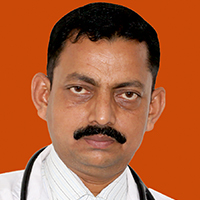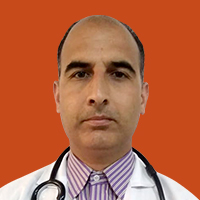

Successful Treatments
Clinics
Doctors
What is Sleep Apnea?
Sleep apnea refers to one type of sleep disorder where the breathing in the sleep of a person becomes interrupted time and again. Such interruptions or apneas may last from a few seconds up to a minute or two and tend to repeat several times during the night. The most common form of sleep apnea is obstructive sleep apnea (OSA), which involves intermittent relaxation of the throat muscles blocking the air passage while asleep. It presents itself as the failure of the brain to signal the muscles to breathe. Complex sleep apnea syndrome incorporates both obstructive and central sleep apnea.
Untreated sleep apnea has certain complications, among which are excessive daytime sleepiness, high risks of cardiovascular conditions, hypertension, as well as reduced cognitive ability. Common treatment options include CPAP machines, lifestyle modifications, and surgery.
Ayurvedic Treatment for Sleep Apnea
Ayurveda provides holistic approaches to managing sleep apnea, as described by traditional Indian medicine. It includes Herbal remedies, dietetic practices, lifestyle modifications, and stress management treatments. Some of the Ayurvedic treatments for sleep apnea are reviewed below.
Herbal Remedies
- Ashwagandha (Withania somnifera): This adaptogenic herb is believed to help the body adapt to stress, as it balances hormones that trigger stress and can induce calmness for better sleep. Ashwagandha helps reduce anxiety levels while improving sleep. It also makes falling asleep easier and prevents waking up.
- Brahmi (Bacopa monnieri): Brahmi is a very commonly used herb for boosting cognitive functions and memory. It will tend to promote relaxation and hence assist in reducing states of mental stress and agitation. By supporting and enhancing mental clarity and tranquility, Brahmi can contribute to a more relaxed and uninterrupted sleep.
- Jatamansi (Nardostachys jatamansi): Calming and sedative, jatamansi has been used traditionally as a sleep aid and to enhance the quality of sleep. Its soothingness helps in adjusting the nervous system so that the sleep cycle is easily reached.
- Shankhpushpi (Convolvulus pluricaulis): This will calm down your nervous system and work well for mental clarity, too. Shankhpushpi can improve sleep because of reduced mental fatigue and relaxation of the mind.
Dietary Guidelines
- Warm Foods and Drinks: Warm, easily digestible foods tend to work better for sleep. Comfort foods such as soups or stews are easy on the digestive system and help prepare one's body for rest. Another calming comfort is herbal tea, such as chamomile, which has a soothing effect on the brain and body, acting almost like a mild sedative.
- Avoid Heavy Meals Before Bed: Consuming huge or spicy meals before bedtime may disrupt your sleep time. Generally, heavy foods lead to stomach uneasiness and indigestion. So, consuming a light dinner that does not cause trouble while digesting will be suitable. Choose food options that could easily be steamed vegetables, lean proteins, or whole grains-which tend not to irritate the gut as much and thereby stabilize blood sugars, leading to a night of better sleep.
- Incorporate Sleep-Promoting Foods: Magnesium and tryptophan-containing foods are rich in nutrients, such as almonds, bananas, and turkey, which may improve sleep.
Lifestyle Modifications
- Yoga and Pranayama: Yoga and breathing exercises, including Pranayama, can soothe the body and mind and help eliminate stress or tension contributors that may cause sleep disorders. Relaxing aspects are cultivated in Shavasana, Corpse Pose, and other Pranayama breathing technique calibrations, which include deep breathing and alternate nostril breathing, to soothe the mind and align the body with sleep.
- Sleep Hygiene:Good sleep hygiene includes setting a quiet, dark environment and sticking to a regular sleep schedule. Before going to bed, avoiding stimulants like caffeine and electronic devices might assist your body in recognizing that it's time to wind down and get ready for a good night's sleep.
- Body Weight Management: Balancing diet and regular exercise will be important for a healthy weight. That is important as a general healthy weight helps control sleep apnea, and excessive weight aggravates the symptoms of sleep apnea. In this way, body weight management will help improve sleep quality and health generally.
Detoxification Therapies (Panchakarma)
- Nasya (Nasal Administration): Herbal oils or powdered herbs are administered through the nasal passages. Nasya helps eliminate the nasal obstruction, thereby improving one's breathing. This treatment may help sleep apnea patients who suffer from a blockage of the nasal area.
- Abhyanga (Oil Massage): Oil massage is called Abhyanga. This has a relaxing, circulatory effect. It will help discharge stress and tension and lead to improved sleep.
Jiva Ayurveda offers expert advice and tailored treatments to those seeking a comprehensive Ayurvedic approach to the management of sleep apnea. Their experienced Ayurvedic doctors evolve integrated plans aimed at an individual's constitution, which encompass herbal remedies, dietetic advice, lifestyle changes, and detoxification treatments. Jiva Ayurveda addresses the root cause of sleep disorders and gives better quality sleep with their treatment. By choosing Jiva Ayurveda, you can experience the combination of traditional wisdom with modern insights to help you manage sleep apnea naturally and effectively.
The Role of Diet and Exercise in Managing Sleep Apnea: Key Strategies for Improvement
Proper sleep apnea management often requires an all-round approach including diet and regular exercise. Diet and exercise generally lead to overall well-being while targeting possible factors that may make this condition worse. Attacking the problem through well-balanced nutrition and physical activities that suit the individual best will surely help better sleep as well as a reduction in the intensity of sleep apnea symptoms. Here's how diet and exercise might be helpful tools in dealing with this condition:
Diet:
- Balanced Nutrition: Generally, a healthy diet rich in whole foods like fresh fruits and vegetables, whole grains, and lean proteins would be helpful. Refined foods, sugary snacks, and alcohol should be limited in intake to decrease inflammation and airway obstruction.
- Hydration: Proper hydration is essential for overall health which allows the prevention of mucus building up and can cause obstruction to the airway. Drinking sufficient quantities of water will keep the airways clear and enable better sleep.
Exercise:
- Regular Physical Activity: Perform regular aerobic exercises, including walking, swimming, or cycling to help control weight and improve respiratory conditions. Exercise in general fosters healthy body weight, which is an important aspect of attenuation of the symptoms of sleep apnea.
Breathing Exercises: Respiratory exercise is specific to exercises designed to build up the strength of the respiratory muscles that improve lung capacity. Techniques like diaphragmatic breathing will work to improve overall respiratory health and quality of sleep.
FAQs
Sleep apnea is caused by a blockage of the airway during sleep (obstructive sleep apnea) or a failure of the brain to signal the muscles to breathe (central sleep apnea). Factors include obesity, nasal congestion, and anatomical variations.
Ayurvedic practices might complement CPAP, but shall not replace it. CPAP is a technology-proven treatment of sleep apnea. However, Ayurvedic practices create a general setting of health promotion, thus optimizing treatment outcomes.
No, because snoring is only one of the symptoms of sleep apnea and sleep apnea is a multiple occurrence of breathing interruption that has far more serious health implications.
For patients diagnosed with obstructive sleep apnea, weight loss is significantly beneficial in reducing the severity of their sleep apnea, especially in cases where sleep apnea is due to excess weight; therefore, diet and exercise regimes are very essential.
Yes, Ayurvedic practices, such as herbal remedies, stress management, and lifestyle modification, may help improve sleep quality and promote general well-being.
Ayurveda advocates the idea of the interrelation of mind and body. Techniques like meditation, mindfulness, and proper mental care decrease the risk of sleep disorders and stress levels and ensure quality sleep.
A great relationship exists between sleep apnea medicine and the treatment of sleep apnea symptoms and involved conditions. It may include nasal decongestants which will help to relieve nasal congestion and improve the airflow, drugs for controlling diseases such as high blood pressure that are commonly associated with sleep apnea, or other physician-directed treatments aimed at the disorder per se.
Several home remedies can complement traditional treatments for sleep apnea. For instance, sipping herbal teas like chamomile before sleeping could also relax and prepare you for better slumber. Using eucalyptus or peppermint essential oil in a diffuser will keep your nasal passage free-flowing and reduce blockage.
Top Ayurveda Doctors
Our Happy Patients
Social Timeline
Related Disease
- Ayurvedic Treatment for Anxiety
- Ayurvedic Treatment for Weakness and Fatigue
- Ayurvedic Treatment for Depression
- Ayurvedic Treatment for Child Bed-wetting
- ayurvedic treatment for bipolar disorder
- Ayurvedic Treatment for Psychosis
- Ayurvedic Treatment for Schizophrenia
- Ayurvedic Treatment for Sleep Apnea
- Ayurvedic Treatment For Insomnia
- Get Ayurvedic Treatment for Agoraphobia
- Ayurvedic Treatment for Autism
Latest Blogs
- Migraine और भोजन का समय: देर से खाना सिरदर्द को क्यों बढ़ा देता है?
- क्या एंटीबायोटिक लेने के बाद पाचन पूरी तरह बिगड़ गया? आयुर्वेद के अनुसार Colitis के उपचार जानें
- अगर मामूली आहार भी पाचन तंत्र सहन न कर पाए तो Colitis को हल्का क्यों नहीं मानना चाहिए? आयुर्वेदिक दृष्टि से जानें
- लंबे समय से सक्रिय Colitis क्यों शरीर की रिकवरी क्षमता को कमज़ोर कर देती है? आयुर्वेदिक नज़र से जानें
- नॉर्मल एंडोस्कोपी, नॉर्मल रिपोर्ट्स… फिर भी रोज़ दर्द—IBS में गलत इलाज कैसे बीमारी को Chronic बना देता है! आयुर्वेदिक उपचार समझें
- क्या बाहर का खाना या मसालेदार भोजन आपके IBS को तुरंत ट्रिगर कर देता है? आयुर्वेदिक दृष्टि से समझें और कब Ayurvedic doctor से मिलना चाहिए जानें
- IBS में दवाइयाँ काम क्यों नहीं करतीं? आयुर्वेदिक कारण और उपचार समझें
- कभी कब्ज़, कभी दस्त: यह सिर्फ पाचन नहीं, पूरे सिस्टम का असंतुलन हो सकता है! जानें कब Ayurvedic doctor से मिलना ज़रूरी हो जाता है
- क्या सर्दियों में दवाइयों के बावजूद साँस पूरी नहीं खुलती? अस्थमा की जड़ आयुर्वेद से समझें
- क्या धूल, धुआँ या परफ्यूम से तुरंत साँस लेने में तकलीफ़ होती है? Asthma के ट्रिगर आयुर्वेद की नज़र से समझें
- सर्दियों में अस्थमा क्यों ज़्यादा बिगड़ जाता है? ठंडी हवा और कफ-वृद्धि का आयुर्वेदिक कारण जानें
- क्या ठंडी हवा लगते ही सीने में जकड़न और साँस लेने में परेशानी होती है? अस्थमा को आयुर्वेद की नज़र से जानें
- क्या सुबह उठते ही बलगम के साथ खाँसी आना अस्थमा का संकेत है? आयुर्वेद से समझें
- क्या लंबे समय तक लैक्सेटिव का उपयोग आपकी कब्ज़ को और जटिल बना रहा है? आयुर्वेदिक समाधान जानें
- क्या गैस, पेट फूलना और सिरदर्द का साथ में होना Chronic Constipation का क्लासिक पैटर्न है? आयुर्वेदिक व्याख्या समझें
- क्या सुबह नींद खुलते ही पेट साफ न होना ‘धीमी अग्नि’ का संकेत है? दीर्घकालिक कब्ज़ में आयुर्वेदिक कारण जानें next topic
- क्या लंबे समय तक बैठकर काम करने से आपकी कब्ज़ लगातार बढ़ रही है? आयुर्वेदिक दृष्टिकोण देखें
- क्या कब्ज़ के चलते आपकी नींद, ऊर्जा और पाचन सब प्रभावित हो रहे हैं? आयुर्वेद में इसके मूल कारण और ज़रूरी उपाय जानें
- क्या तनाव और चिंता भी Chronic Constipation का छुपा हुआ कारण बन सकते हैं? आयुर्वेदिक दृष्टि देखें
- क्या कई दिनों तक कठोर स्टूल बनना और पेट में ऐंठन रहना Chronic Constipation की पहचान है? आयुर्वेदिक संकेत समझें
Ayurvedic Doctor In Top Cities
- Ayurvedic Doctors in Bangalore
- Ayurvedic Doctors in Pune
- Ayurvedic Doctors in Delhi
- Ayurvedic Doctors in Hyderabad
- Ayurvedic Doctors in Indore
- Ayurvedic Doctors in Mumbai
- Ayurvedic Doctors in Lucknow
- Ayurvedic Doctors in Kolkata
- Ayurvedic Doctors in Patna
- Ayurvedic Doctors in Vadodara
- Ayurvedic Doctors in Ahmedabad
- Ayurvedic Doctors in Chandigarh
- Ayurvedic Doctors in Gurugaon
- Ayurvedic Doctors in Jaipur
- Ayurvedic Doctors in Kanpur
- Ayurvedic Doctors in Noida
- Ayurvedic Doctors in Ranchi
- Ayurvedic Doctors in Bhopal
- Ayurvedic Doctors in Ludhiana
- Ayurvedic Doctors in Dehradun
































